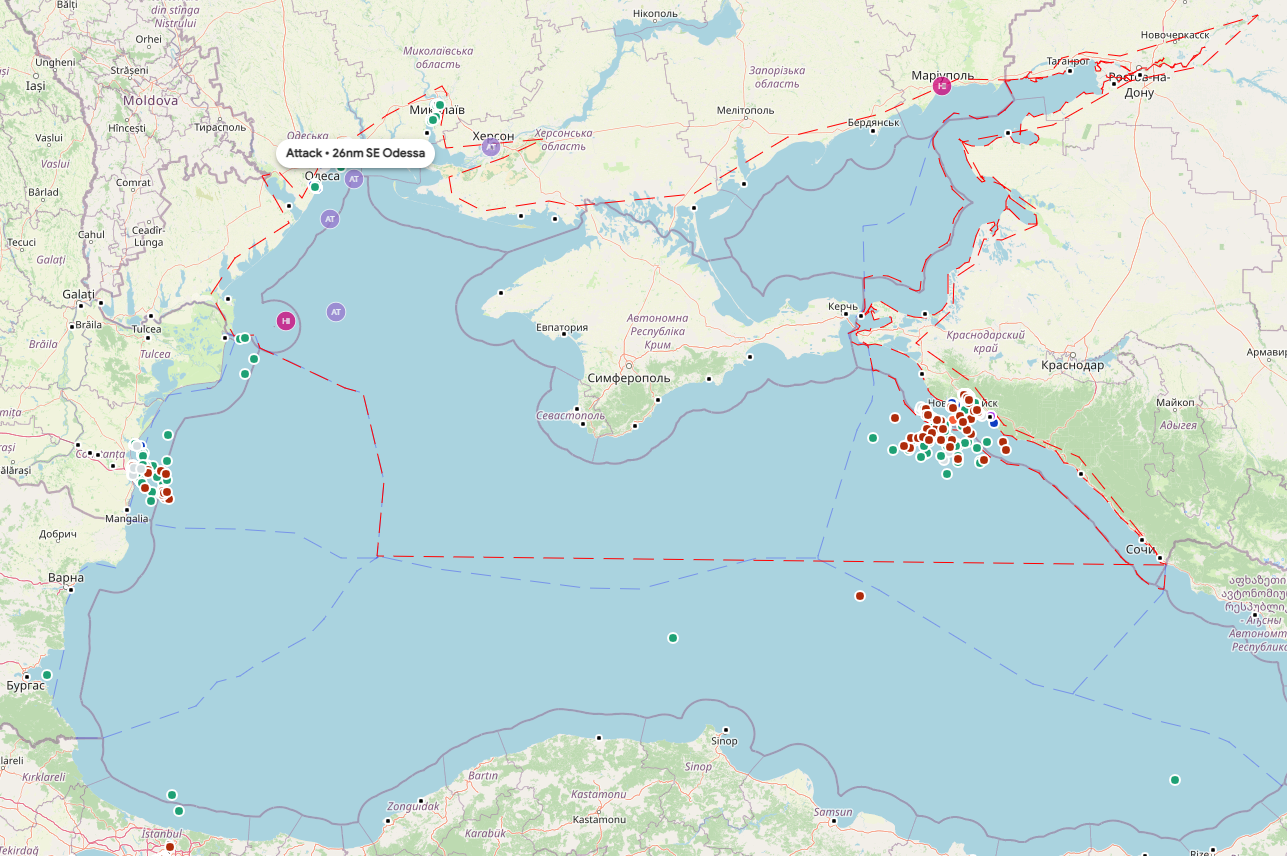3 min read
Why the Black Sea Grain Initiative must be restored
By: Lowy Institute on August 3, 2023 at 8:00 AM

Recently, Russia announced that it would suspend its participation in the Black Sea Grain Initiative, the landmark diplomatic deal brokered by the United Nations and Türkiye that allowed for the resumption of agricultural exports after the Russian naval blockade of key maritime routes following its invasion of Ukraine.
The contribution that this agreement has made to global food security cannot be overstated – facilitating exports of essential food and fertilisers from Ukraine and Russia and reducing global food prices by around a quarter since March last year. Critically, grain shipped through the Black Sea also played a central role in supporting urgent humanitarian operations in six countries in Africa and Asia. Rewind a year and the world was on the precipice of a global food crisis – caused by structural factors but exacerbated by the war – with almost ten per cent of the world population facing acute food insecurity. Today, with the collapse of the deal, the world could soon face similar conditions.
Global food security must not be allowed to fall victim to the conflict in Ukraine. This was always the position of the International Chamber of Commerce, the organisation I lead and which, back in April 2022, proposed to United Nations Secretary-General António Guterres the creation of a humanitarian food corridor to allow for the export of grain and sunflower seeds from Ukraine in exchange for a relaxation of sanctions against Russian fertilisers. At the time, food prices had soared to record levels, with food price inflation reaching as high as 1,000 per cent in countries such as Lebanon, and our view was that only resuming both Ukrainian food and Russian fertiliser trade could avert a global hunger catastrophe. A year on, the case for the deal remains as strong as ever.
Restoring the Black Sea deal must, accordingly, be an absolute priority for the international community. Failing to do so will, simply put, imperil millions of lives. Even in the few days since the deal was scuppered, wheat futures have risen around four per cent. And the uncertainty around whether the agreement will be restored will only increase volatility in prices for food staples – not just wheat, but other crops as well given the impact that a potential shortage of fertilisers, such as ammonia, will have on yields all over the world. Without a deal, the world may face yet another crisis not only of food affordability but food availability – a challenge exacerbated by liquidity constraints and increasingly unmanageable debt burdens faced by scores of countries, both developing and middle-income.
Naturally, poorest nations will be hit hardest by the deal lapsing. The Black Sea Grain Initiative benefitted many countries by restoring wheat imports, mostly in developing countries in Asia and Africa. But this should also be a concern for advanced economies – after all, rising food prices could lead to social, political and economic instability with the potential to rebound even to those countries able to source food from other regions. Nigeria’s recent declaration of a state of emergency due to surging food prices may be the canary in the coalmine. And policymakers would be wise to recall that a major driving factor of the Arab Spring was the doubling of food prices from 2006–08 and a serious price spike in 2010.
It is therefore imperative that all parties – not only Russia and Ukraine, but Western nations involved in the deal – continue talks on the terms under which the Black Sea agreement can be renewed. Importantly, this must involve a full recognition of the original intent of the initiative, which was to facilitate balanced agricultural trade from both Ukraine and the Russian Federation.
As superficially unpalatable as it may seem, for the West this means recognising that the agreement may require compromises on the application of trade restrictions against Russia. For months, Russia has been arguing that it did not get its end of the bargain, insisting that it would only stay in the deal if an agreement could be reached that would allow for the fuller resumption of its own agricultural trade – including by connecting a Russian agricultural bank to the SWIFT international payments system, waiving certain sanctions on insurance that had impeded Russian shipping, and unfreezing the accounts of Russian fertiliser companies.
Adhering to these conditions – or at least reaching an agreement that would through other means fulfil the original intent of the deal to facilitate both Ukrainian and Russian agricultural trade to avert a hunger crisis – would not involve turning the West into a “bear hugger,” caving into Russian belligerence or compromising efforts to support Ukraine’s territorial defence. Rather, it would be to avoid precipitating a food security crisis with truly unimaginable consequences.
Source: Lowy Institute
Related Posts
Naval Drones and the Battle for Crimea: Ukraine’s..
The ongoing conflict between Ukraine and Russia has transformed the Black Sea into a focal point..
Russia's new naval doctrine calls US, NATO main..
The United States' pursuit of global maritime dominance and the growth in NATO activity are the..
Russia repelled a mass attack by Ukraine's..
Russian forces fought off a mass attack by Ukrainian high-speed marine drones on a Russian naval..





